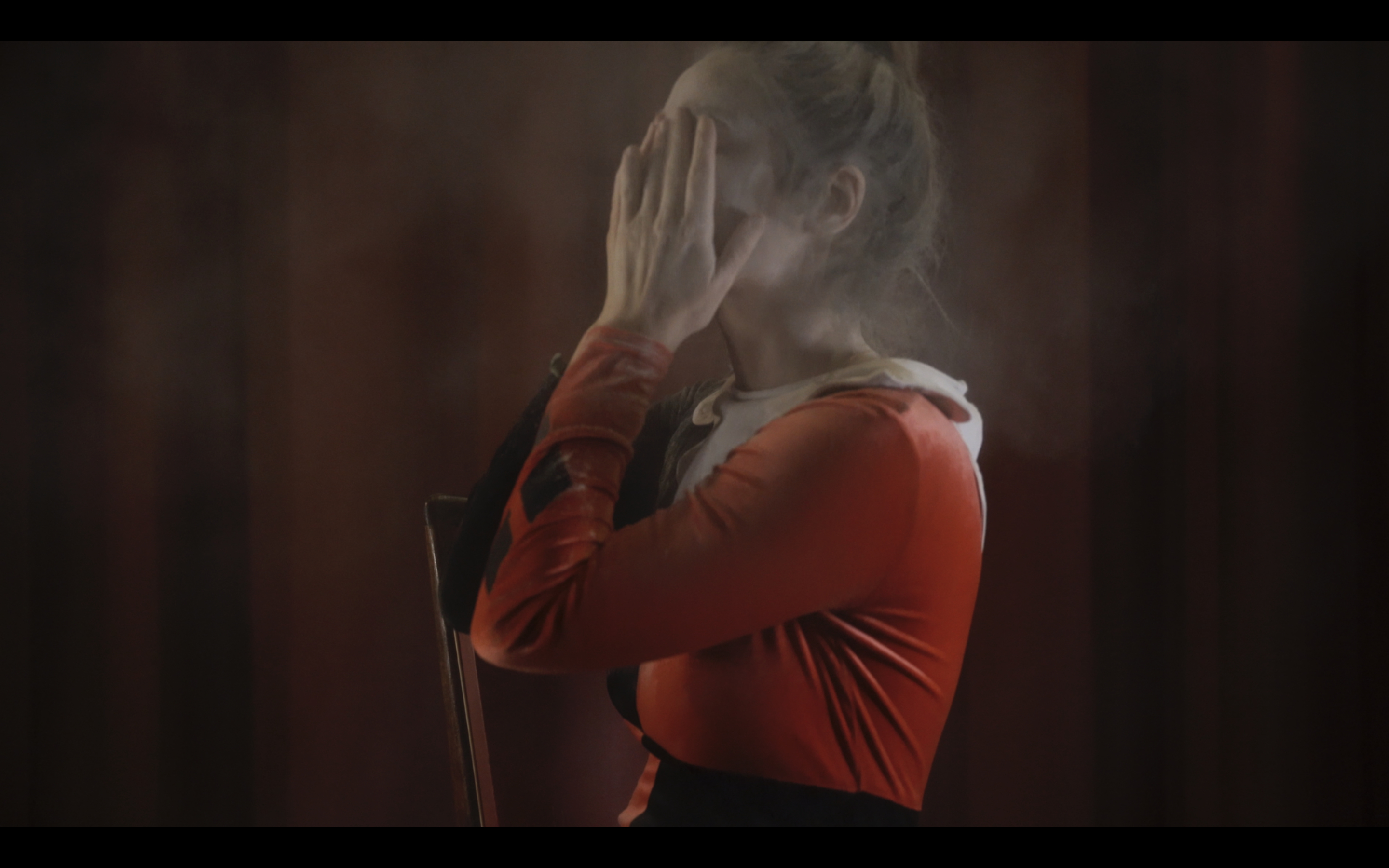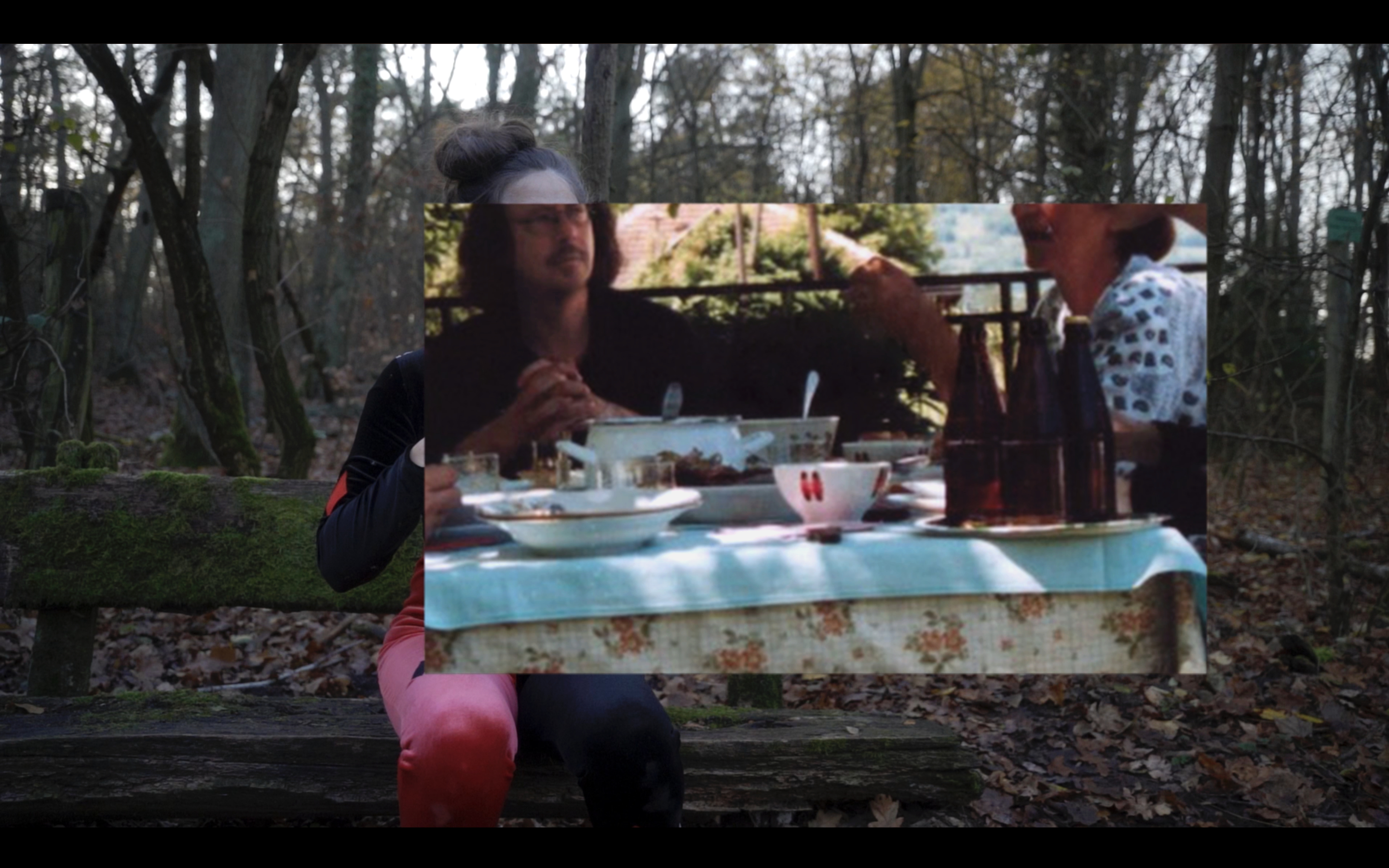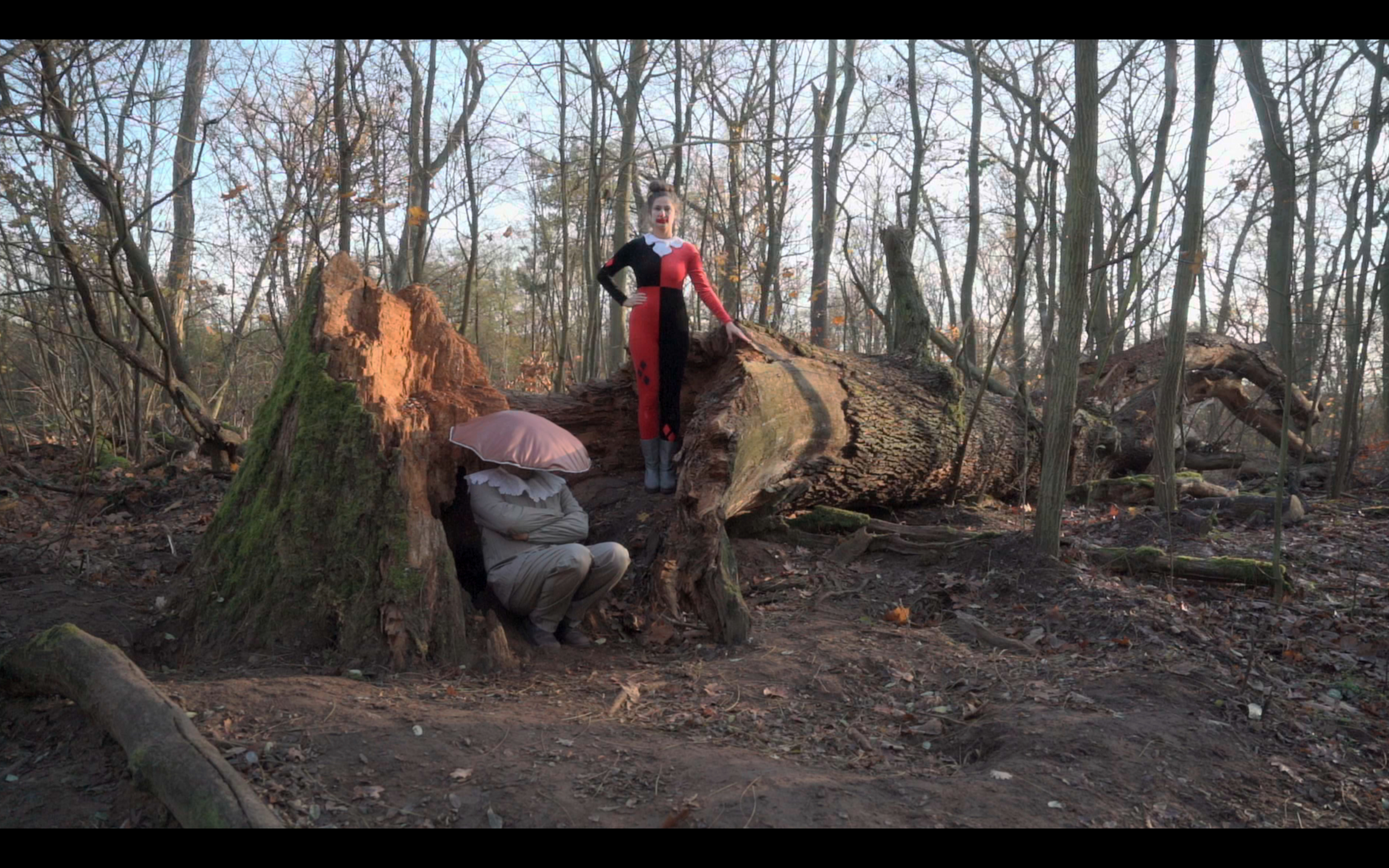THE SILENT WEAVING OF THE SPIRIT
Video performance: HD, colour, stereo, 30’
Short description:
Video performance: HD, colour, stereo, 30’
Concept / Directing: Adnan Softić, Nina Softić
Text: Adnan Softić
Costume: Nina Softić
With: Mateja Meded, Adnan Softić
Editing: Nina Softić
Sound: Daniel Dominguez Teruel
Supported by: Goethe-Institute Bosnia and Herzegovina, Heinrich Böll Foundation Sarajevo
Short description:
The question rising is what poetry does in the context of atrocities, or when “written” becomes dangerous. The fact that freedom of art has to stay untouched brings the forever discussion on its efficiency, because the relation between the responsibility and art is complicated. Among other things, this is about Peter Handke's observations of the town of Višegrad and the Drina valley. The special thing about it is how he uses his highly gifted artistic style to contradict the facts. There are few conflicts in the world whose crimes have been documented so carefully and in such detail - so it cannot be due to a lack of facts. Rather, Handke uses an artistic method to suspend the factual.










Adnan Softić and Nina Softić research-based works address the impact of the politics of history on architecture and national cultures of remembrance. Their latest video installation focuses on the misappropriation of history, using the example of the once multicultural city of Višegrad in Bosnia and Herzegovina. In a place that is inextricably linked to the ethnic conflicts and brutal war crimes of the Yugoslavian wars, since 2011 a kind of artificial city, the brainchild of film director Emir Kusturica, has been developing, and became a place of inspiration for representatives of the "alt-right" movement. When Nobel Prize winner Peter Handke visited Visegrad, he too became party to national myth-making and the relativization of violent crimes. The Silent Weaving of the Spirit (2021) interweaves documentary and imaginary narrative strands around the figure of Handke, as someone in search of the 'barbarogenius" - the ideal of primitive creation conjured up by the Serbian writer Ljubomir Micić in his book of the same name, published in 1938, as the Eastern European antithesis to "Western civilisation.“
Krisztina Hunya, n.b.k.